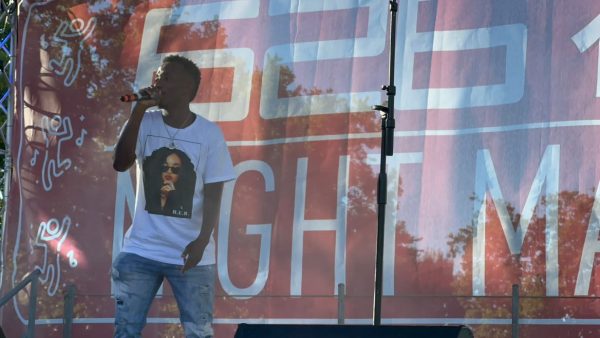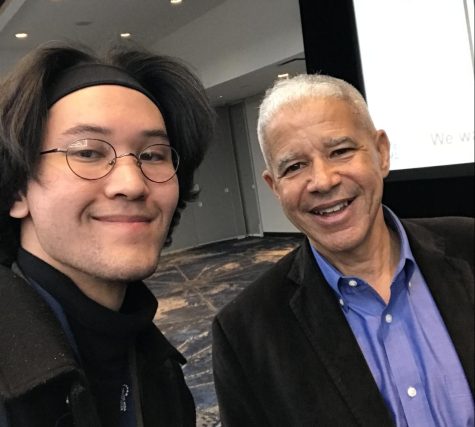Author of controversial book visits East Bay
March 2, 2016
Mass incarceration in urban cities is far too familiar for the Bay Area. In 2014 the California Department of Corrections and Rehabilitation released a report that showed there were 134,339 total inmates in the CDC. Of those 134,339 inmates, 55,250 were Latino or Hispanic and 38,777 were Black. They account for 70 percent of the total prison inmate population in the state.
Alice Goffman, an urban ethnographer and assistant professor at the University of Wisconsin who wrote the book, “On the Run: Fugitive Life in an American City,” spoke at the Cal State East Bay University Theater on Thursday. Her book, about the problems that arise from mass incarceration in Philadelphia, was both controversial and acclaimed.
According to Goffman, the United States has the highest incarceration rate of any country in the world. Goffman said, “For every 100,000 Americans, 716 are imprisoned. A lot of these are poor kids, specifically Black and Latino. Prison is now a barrier for them to succeed.”
When the book was released in 2014, it was greeted with positivity from some heavy hitters like Cornel West, Howard Becker and Elijah Anderson, sociologists who praised Goffman for her innovative work. While she was a 20-year-old student at the University of Pennsylvania, Goffman began her research that was the basis for the book. She befriended several low to middle class African American men, their girlfriends, friends and family in an effort to see the problems that mass incarceration has had on urban inner cities and its inhabitants.
Goffman eventually moved closer to the West Philadelphia neighborhood she begun to study and eventually published the book in 2014, and was rereleased in paperback the following year. However, that’s when things began to take a turn for Goffman. In May 2015, an anonymous 60-page critique of her book was sent to hundreds of people in the field, which included the three schools she had ties to, the University of Wisconsin-Madison, the University of Pennsylvania and Princeton University.
The document claimed that Goffman fabricated not just the people in the book and their situations, but it also claimed her actual time spent in the neighborhood was false as well.
Goffman claimed that she changed the names of the people in the book as well as the neighborhood and street names in order to protect the people she followed from potential incarceration, something many critics slammed. Wisconsin put together a panel of people to look into the allegations, however, the panel determined the accusation of research misconduct were not true.
This didn’t stop others critical of her work to speak up. Northwestern University professor Steven Lubet made some claims of his own. In an open letter to the University of Wisconsin, Lubet said there were some red flags in her book especially two incidents with police interaction that didn’t seem realistic.
However, many people have fact-checked Goffman and actually found the neighborhood and some of the people she befriended for her research. Goffman does not allow the criticism to stop her goal of shining a light on a problem she felt is “swept under the rug.” Goffman said that poor communities, primarily filled with minorities, often have issues developing trust for the police departments that are supposed to protect them.
“Were asking them to negotiate a police force that is entering poor communities of color not for the purposes of promoting public safety, but to make arrest counts.”
Goffman said that she believed the criminal justice system needs to readjust their priorities to help these types of communities and people of color succeed.
“We need a criminal justice system that acknowledges the legacy of exclusion that poor people of color in the US have faced and does not promote and perpetuate those exclusions,” Goffman said. “We need a criminal justice system that believes in Black young people rather than treating young Black people as the enemy to be rounded up.”
















